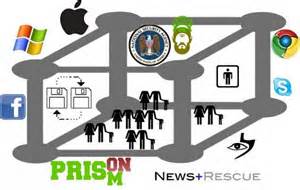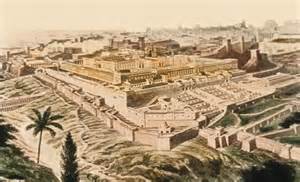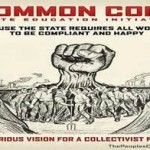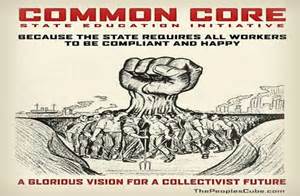Money buys influence and Soros has both. While much has been written and exposed on George Soros, at the very top U.S. leadership follows the Soros edict, follow my playbook and you will be rewarded.
Hillary Clinton, Barack Obama and John Kerry have all left a wake of destruction globally as they have been bought by George Soros. Most recently, matters relating to Israel, Russia and the European Union appear to defy logic, when upon a closer look, Soros is at the core of policy.
Quietly, last week, John Kerry welcomed and introduced George Soros at a conference held at the George C. Marshall Center to discuss matters on civil society. When Soros speaks, leadership listens and on the subject of civil society, Soros is dictating society according to his own objectives. None of those objectives are in keeping with America’s best interests. Obama, Hillary and Kerry are complete acolytes of Soros and obey his commands.
U.S. Secretary of State John Kerry will introduce liberal megadonor George Soros at an open forum on Tuesday, the latest evidence of the billionaire using his political connections to benefit his investments and foreign policy goals, critics say.
Kerry will introduce Soros at the 1:30 p.m. forum on May 13 at the George C. Marshall Center in Washington, D.C., according to a State Department event notice.
Soros will discuss “strengthening civil society, democracy and the world economy” with Assistant Secretary for Public Affairs Douglas Frantz following Kerry’s introduction.
Soros, a New York City hedge fund manager who amassed great wealth through his company Soros Fund Management, has used his foundation network—known as the Open Society Foundations (OSF)—to dispense more than $11 billion to groups abroad as well as numerous left-leaning U.S. groups in the last three decades.
He is perhaps the Democratic Party’s most famous donor, contributing almost $24 million to advocacy groups that supported Kerry’s failed presidential bid in 2004, according to the Center for Responsive Politics. He also donated $1 million to the Priorities USA Action Super PAC that helped reelect President Barack Obama in 2012.
Critics say Soros leverages his political connections to increase the returns on his investments.
While Soros has increased his multi-million dollar investments in both U.S. and foreign companies that extract shale oil and gas, the Obama administration has championed natural gas as a less carbon-intensive bridge fuel toward a “clean-energy future.” The administration’s proposal to offer incentives to companies that use trucks powered by natural gas would benefit Westport Innovations, a company that converts diesel engines for natural gas use and is partially owned by Soros’ hedge fund.
Soros’ political advocacy also tends to blend with his investments. He proposed in 2009 that developed countries create a “green fund” to combat climate change in developing countries by directing billions from the International Monetary Fund (IMF) toward forestry, land-use, and agricultural projects. Soros’ fund controls more than a $200 million stake in Adecoagro, a Luxembourg-based company that owns hundreds of thousands of acres of farmland in South America and would benefit from the IMF cash infusion.
Soros told the New Yorker in a 2004 interview that “there are occasionally symbiotic moments between political and business interests” that occur during his efforts to influence American policy.
Michael Rubin, resident scholar at the American Enterprise Institute (AEI) and former Pentagon adviser in the George W. Bush administration, said in an email that he hopes “Kerry will take a long shower after the event” because hosting Soros is the “diplomatic equivalent of prostitution.”
Rubin said the optics of the event are “horrible” given Soros’ longstanding ties to the administration and his past record of marrying policy advocacy with business.
“If Kerry wants to sponsor a well-deserving guest at a State Department ‘open forum,’ why not someone like Malala Yousefzai, the young school girl whom the Taliban tried to murder?” he said. “Our diplomats could learn a thing or two about moral clarity from her; they certainly won’t from Soros.”
State Department deputy spokeswoman Marie Harf told the Washington Free Beacon that criticisms of Soros’ appearance at the event are “wholly ridiculous and have no basis in fact whatsoever.”
“This is a regular secretary’s open forum event intended to inform and educate department employees,” Harf said in an email. “George Soros was invited to discuss his views on support of civil society.”
Harf noted that the forum has hosted “guests from diverse points of view” in the past, including Chairman of the Joint Chiefs Gen. Martin Dempsey, General Electric CEO Jeffrey Immelt, and Lockheed Martin CEO Marillyn Hewson.
Soros’ actions abroad have also conflicted with traditional U.S. foreign policy stances, raising questions about his appearance at a State Department-sponsored forum.
The OSF have financially supported groups that support boycott, divestment, and sanctions (BDS) campaigns against Israel and called it an “apartheid state,” according to a report last May by NGO Monitor.
The OSF network finances groups such as the Palestinian Center for Human Rights, a Gaza-based organization that regularly accuses Israel of being an “apartheid state” and refers to terror attacks on Israeli civilians as “resistance.”
Kerry was widely criticized last month after warning that Israel could become “an apartheid state” if it failed to reach a two-state solution with the Palestinians.
Additionally, Soros has financed opposition groups and media in countries such as Azerbaijan and Armenia, two countries that are still locked in a violent and decades-old territorial dispute over the Nagorno-Karabakh region. Soros’ involvement there prompted leaders to express concerns that he could further stoke tensions and contribute to another outbreak of war.
“He pursues his own vision, undisturbed by his effect on other nations or the interests of his own,” wrote Richard Miniter, a contributor to Forbes, in 2011. “It is hard for foreign governments to hold him accountable, and his goals and methods are usually kept secret.”
Soros wrote in his 2006 book, The Age of Fallibility: The Consequences of the War on Terror, that “the main obstacle to a stable and just world order is the United States.”
Soros has an estimated net worth of $20 billion—much of it made through his controversial investment philosophy of making massive, highly leveraged bets on the direction of global financial markets. His involvement in the East Asian financial crisis of the late 1990s drew sharp rebukes from leaders in the region.
He is a major donor to the liberal Center for American Progress and an architect of the Democracy Alliance, a shadowy organization that disburses millions to left-leaning groups but does not disclose its donors.
Additionally, Soros has staked out controversial positions on social issues, calling in 2010 for the full legalization of marijuana in the United States.
Soros’ office did not respond to a request for comment.
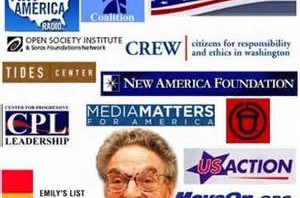
When it comes to Russia and Putin’s aggressive missions towards Crimea, Ukraine, the Baltic states, George Soros has his hands all over the policy of the United States and the European Union where the International Monetary Fund plays in the background.
The billionaire financier says in its tepid response to Russia’s Crimea land grab, the EU flubbed a key chance to breathe new life into the stale union.
George Soros, one of the world’s leading investors, has warned that the European Union is in danger of falling apart if it fails to confront Vladimir Putin’s naked aggression in Ukraine.
The billionaire financier told The Daily Beast that European governments should have seized on Russia’s land grab in Crimea to breathe new life into a union that is disintegrating and stumbling towards oblivion. Instead, he argued, squabbling European nations have failed to meet the challenge and continued to act in their own narrow self-interest. “Europe was totally unprepared for this crisis and Putin outmaneuvered Europe with no difficulty,” he said.
Soros, who became known as the Man Who Broke the Bank of England after making $1 billion by betting against Europe’s previous financial union, has long insisted that the Euro was being fatally mismanaged. His latest book, published this week, is entitled The Tragedy of the European Union. A loud supporter at the launch of the Euro currency and a cheerleader for a united Europe, Soros has been confounded by what he calls the “nightmare” reality 15 years after its introduction.
Speaking in London, he said it was heart-breaking to see European governments shrug their shoulders at the precise moment the continent was finally witnessing an unprecedented popular uprising in the name of the European Union. “Ukrainians have effectively proved that they are willing to sacrifice their lives to get closer to a Europe that is, at the same time, in the process of disintegration,” he said.
With Putin’s troops in Crimea and a referendum on joining Russia due to be held over the weekend, Soros said there was still time for Europe to act, and reinvigorate the European Union’s withering soul.
“I would argue passionately that [the European Union] should not be a failed experiment and events in Ukraine are a wake-up call to face that issue,” he said. “It’s a challenge, and I hope that Europe will respond to it and actually really rediscover its original mission because that’s what got lost in this distortion that has occurred.”
Angela Merkel, the German chancellor, indicated that Europe was willing to increase pressure on the Kremlin on Thursday during her most emotional and strident speech since the start of the Ukrainian crisis. She said a referendum orchestrated by Crimea’s pro-Russia parliament would be a “catastrophe,” and indicated that the EU was willing to impose travel bans and asset freezes on people and firms accused of helping to violate Ukraine’s territorial integrity as soon as Monday.
Soros argued that it was more important for Europe to offer positive assistance to the struggling Ukrainian government. “It’s very important to respond and respond the right way, which is not necessarily to impose sanctions on Russia, but to actually help Ukraine financially, and also with technical assistance—something like a European Marshall Plan for Ukraine—that would be the right response,” he said.
In his new book, which asks “Is it too late to save the European Union?” Soros argues that Putin’s attempt to build a new Eastern bloc in Ukraine and beyond could eventually jolt Europe back to life. “We have just witnessed a dramatic test of strength between Russia and the European Union. Russia came out ahead,” he said. “Russia has benefited from the fact that Europe is disunited. But now that Russia is emerging as a threat to Europe, it may once again become a force that brings Europe closer together. I pin my hopes on Chancellor Merkel … one must never give up hope.”
He is hardly holding his breath, however. Soros blames the Germans for eroding Europe’s fragile union by enforcing policies of austerity and allowing southern European nations to build up debts they will never be able to repay. He accused Berlin of doing “just enough” to keep the Euro afloat: “This confirms my worst fears. It’s the nightmare I’ve been talking about and there is little chance we’ll wake up soon.”
Germany’s economic strength makes it the Eurozone’s driving force—Britain is not part of the currency union—but the nation’s history has turned it into a reluctant leader. “Germany has emerged as the imperial power, the hegemon of Europe, but the German public does not want to be in that position exactly because of the painful memory of Hitler. It is in denial and is unwilling to live up to the responsibilities,” he said.
Despite its unwillingness to assume a strong leadership role, Soros argues that Berlin’s fiscal rigidity has created a two-tier Europe where debtor countries are at a permanent disadvantage. If that does not change, he said: “We will have a Europe in which Germany is seen not as a leader but as an oppressor and exploiter. It will not be loved and admired by the rest of Europe it will be hated and resisted.”
That resistance has already begun in a swathe of countries where popular anti-European sentiment has been seen on the street and at the ballot box. Europe-wide elections in May are expected to send a record number of politicians to Brussels who are hostile to the very institutions they will be populating. In Britain, the governing Conservative Party has promised a referendum on leaving the European Union altogether. “That would be a big step forward in the disintegration of the European Union,” Soros said. “Britain’s absence would greatly diminish the weight of the EU in the world … The world badly needs Europe’s soft power.”


